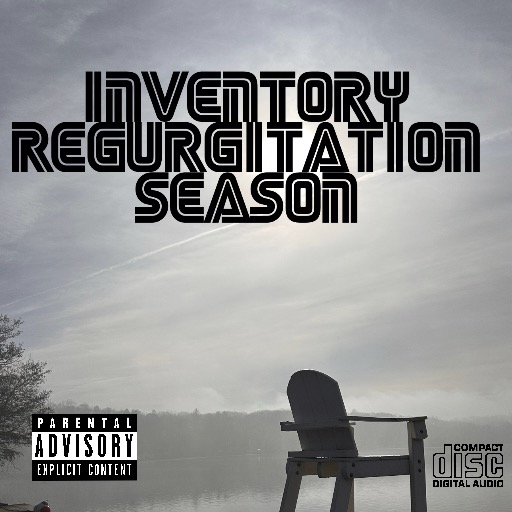There’s a marginally popular song today where some guy whines about how it’s stick season in Vermont and that he’s sad because his friends are gone and his girlfriend dumped him. He says he saw her mom and she forgot that he existed and that he’s sad because his dad wasn’t nice and he wishes his girlfriend would come back but maybe it’ll be okay because he’ll just drink until his friends come home for Christmas. Cry me a river, bro. I was thinking of writing a similar song, but mine wasn’t going to be about the fall months it was going to be about the month of February, and I wasn’t going to call it Stick Season I was going to call it Inventory Regurgitation Season. I’m hesitant because the title feels like it won’t find mainstream popularity and without a banjo I don’t think it’ll be all that catchy.
Regardless, that’s what it is right now: Inventory Regurgitation Season. Time to recall the old listings from the prior year and chew on them for a bit. You once called me new and exciting but now reverse peristalsis would suggest you’re just old and sort of digested, or so a line in my song was going to go. It’s February at the lake and this is what we do. We just look for new listings that are often the old listings. We had a nice break from this season over the last several years, because in order to have regurgitated listings you needed listings that failed to sell. Everything sold during the manic years, so we never had a chance to worry about what might happen if the listings returned to market. This year, they’ve returned, and I’m an interested participant in this market typical phenomenon. The only question now is what happens next.
Do these listings, reconstituted and repackaged and sometimes rebranded, sell? Everything sells, so the answer to that question is yes, the only questions left are when will they sell and for how much? Will the market forgive and engage, or will the market take a skeptical look and wonder what might be wrong? After all, for a listing to return to market in the middle of Regurgitation Season it had to fail to sell during the prime season. If a house didn’t quite work in the market in August when the waves wash blue and the white piers stand proud in their cribs, how does that same house look when the waves roll icy and the piers lay strewn on front lawns in loose stacks?
This return of the undigested inventory isn’t something to be concerned about, as it’s just a reversion to normal market behavior. We’ve forgotten what things were like when the market was normal, and that forgetfulness on our part shouldn’t be construed as a negative sign for the market. Listings sometimes don’t sell, and then they sometimes come back to market the following selling season. February, no matter what it looks like, is the start of our spring selling season. The key now is to watch the market’s response to these properties and see what happens. What normally happens is these sorts of properties tend to sell at discounts when compared to listings that were not previously available. If you’re a buyer, this puts you in a bit of a conundrum. Do you wait for the new inventory that wasn’t already passed around the market? Or do you work to secure value that might be more easily achievable with a piece of aged inventory? It’s your call, but if you’d like some market advice I’m here to help. Look for my new single, Inventory Regurgitation Season, wherever records are sold.

